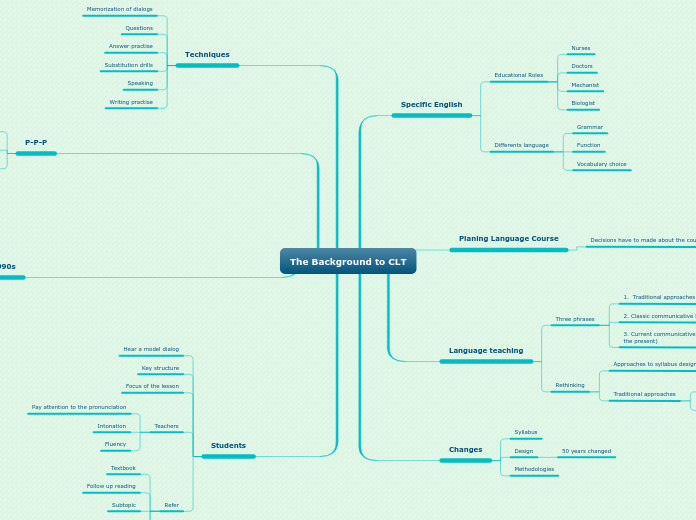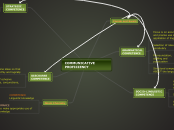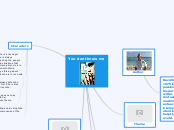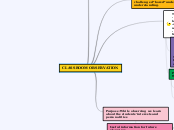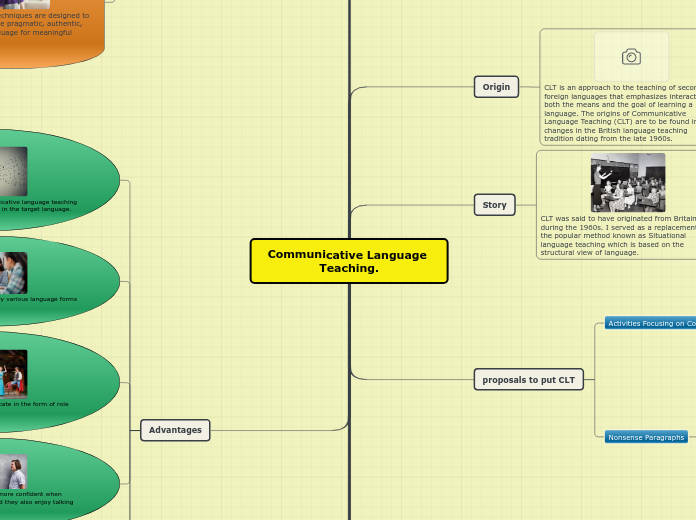The Background to CLT
Students
Refer
Vocabulary
Reading
Subtopic
Follow up reading
Textbook
Teachers
Fluency
Intonation
Pay attention to the pronunciation
Focus of the lesson
Key structure
Hear a model dialog
CCLT 1970s-1990s
Syllabuses and teaching methods
Traditional vocabulary and grammar
Situational language teaching
Audiolingualism
Communicative competence was developed within the discipline of the linguistics
P-P-P
Production
Students practice using the new structure in different contexts
Practise
Students practise using the new structure
Presentation
The new grammar structure is presented
Techniques
Writing practise
Speaking
Substitution drills
Answer practise
Questions
Memorization of dialogs
Changes
Methodologies
Design
50 years changed
Syllabus
Language teaching
Rethinking
Traditional approaches
Students are given examples of sentences-grammar
Teaching gave priority of grammatical competence
Approaches to syllabus design and methodologies
Three phrases
3. Current communicative language teaching (late 1990s to the present)
2. Classic communicative language teaching (1970s to 1990s)
1. Traditional approaches (up to the late 1960s)
Planing Language Course
Decisions have to made about the course
The best methodology
Decisions about issues belong the field of syllabus design or course design
Advanced levels- skills- microskills
Decision about vocabulary- grammar
Specific English
Differents language
Vocabulary choice
Function
Grammar
Educational Roles
Biologist
Mechanist
Doctors
Nurses
